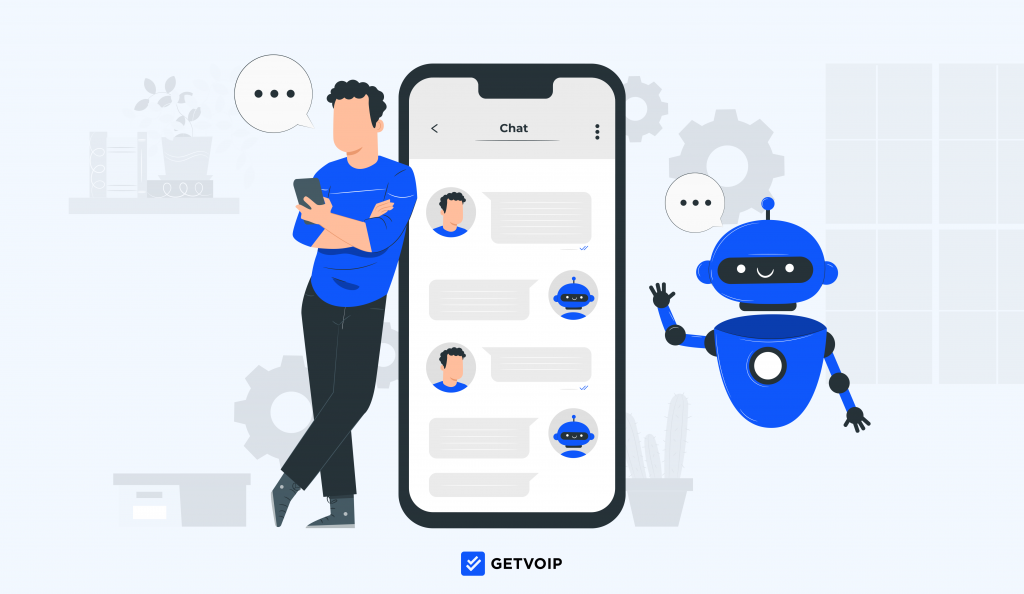Hey there, fellow small business enthusiasts and e-commerce adventurers! Jeff here, diving headfirst into a topic that’s as exciting as it is transformative—leveraging Artificial Intelligence (AI) to revamp e-commerce engagement and skyrocket those conversion rates. So, buckle up! We’re embarking on a journey through the AI/E-Commerce landscape, where AI isn’t just a buzzword; it’s a game-changer for conversion improvement in businesses like yours.
Table of Contents
The Dawn of AI E-commerce
Remember the days when e-commerce was just about uploading products to a website and hoping for the best? Those days are long gone. In the digital era, AI has emerged as a pivotal player, transforming how businesses interact with customers, personalize experiences, and ultimately improve conversions.
AI-Driven Personalization: A New Frontier
Imagine walking into a store where the salesperson knows your taste, preferences, and even your budget. Welcome to AI e-commerce focused on personalization and customer experience. By analyzing data like browsing history, purchase patterns, and customer interactions, AI tailors the shopping experience to each user. The result? A significant uptick in engagement and conversion improvement.
Chatbots: The 24/7 Sales Associates
Chatbots are the unsung heroes of AI e-commerce. They’re there when you’re not—24/7, answering questions, providing recommendations, and guiding users through their buying journey.
Integrating a chatbot into your e-commerce site can reduce bounce rates and lead to increased conversion improvement, all by enhancing customer support.

Predictive Analytics: Forecasting Future Trends
AI’s ability to predict future buying trends and customer behavior is like having a crystal ball. Predictive analytics can forecast demand, optimize inventory, and even tailor marketing campaigns to target customers more effectively.
For small e-commerce businesses, this means staying ahead of the curve and making data-driven decisions that pay off.
Understanding Predictive Analytics
At its core, predictive analytics involves using historical data, machine learning, and statistical algorithms to forecast future events.
For e-commerce, this means analyzing vast amounts of data from past consumer interactions, sales patterns, and market trends to predict future buying behaviors, product demands, and even potential revenue streams.
The power of predictive analytics lies in its ability to turn raw data into actionable insights, enabling e-commerce businesses to make informed decisions that drive growth and increase conversion improvement.
Enhancing Customer Experience with Personalized Marketing
Imagine being able to predict what your customers want even before they do. Predictive analytics makes this possible by identifying patterns in customer data, allowing for highly targeted and personalized marketing campaigns.
By understanding customer preferences and behaviors, businesses can tailor their marketing messages, recommend products, and create offers that resonate on a personal level.
This level of personalization enhances the customer experience and significantly boosts conversion rates by delivering the right message at the right time.
Optimizing Inventory and Supply Chain Management
One of the most challenging aspects of e-commerce is managing inventory in a way that meets demand without overstocking or stockouts. Predictive analytics offers a solution by forecasting demand for products with remarkable accuracy.
Predicting peak demand periods, seasonal trends, and potential supply chain disruptions allows businesses to optimize their inventory levels, ensuring they have the right products at the right time. This optimization reduces holding costs, minimizes stock shortages, and ensures a smooth, efficient supply chain that can adapt to changing market dynamics.

Dynamic Pricing for Competitive Advantage
In a market where prices can fluctuate rapidly, setting the right price at the right time can be the difference between a sale and a missed opportunity. Predictive analytics enables dynamic pricing strategies, allowing businesses to adjust prices based on demand, competitor pricing, market conditions, and customer willingness to pay.
This strategy improves sales and conversion rates and maximizes profitability by ensuring products are priced optimally in real time.
AI-Optimized Pricing: The Competitive Edge
Pricing can make or break your e-commerce business. AI e-commerce can provide optimized pricing strategies that allow for dynamic pricing adjustments based on various factors such as demand, competition, and customer behavior.
This means you can always offer competitive prices, attract more customers, and improve margins.
Enhancing Product Discovery with Visual Search
Ever wished you could search for products by simply uploading a picture? With AI-powered visual search, you can. This technology enhances product discovery, allowing customers to find exactly what they want with a snapshot. It’s a seamless, intuitive way to browse, boosting engagement and conversions.
Making Sense of Big Data
The backbone of AI’s magic in e-commerce is its ability to sift through and make sense of vast amounts of data. From customer reviews to social media sentiment, AI analyzes this data to provide actionable insights, helping you fine-tune your strategies and offerings for maximum impact.
Customizing Customer Experiences
One of the most significant advantages of making sense of big data is offering highly customized customer experiences. AI can create detailed customer profiles by analyzing data from various touch points, including preferences, purchase history, and browsing behavior.
This information allows businesses to craft personalized shopping experiences, recommend products, and send tailored marketing messages. Personalization is no longer a nice-to-have; it’s a must-have for improving engagement, loyalty, and conversion rates.

Improving Operational Efficiency
Big data isn’t just about marketing and sales; it’s also about streamlining operations and improving efficiency. From supply chain logistics to inventory management, AI can analyze operational data to identify bottlenecks, predict demand, and optimize workflows.
This operational intelligence can lead to significant cost savings, reduced waste, and improved customer satisfaction by ensuring that products are in stock and delivered on time.
The Path Forward
As we move forward, the role of big data in e-commerce will only grow.
The businesses that invest in AI and analytics capabilities will be the ones that differentiate themselves, offering unparalleled customer experiences, efficient operations, and innovative products. Making sense of big data is not just about handling information; it’s about unlocking your e-commerce business’s potential in a strategic, customer-centric, and forward-looking way.
Overcoming Challenges: Privacy and Trust
With great power comes great responsibility. Implementing AI in e-commerce requires a delicate balance between personalization and privacy.
Ensuring data security and building trust with your customers is paramount. Transparent policies and ethical AI practices are the foundation of a successful AI-driven e-commerce strategy.
FAQs
- How do I start integrating AI into my e-commerce platform?
Begin with customer-facing features like chatbots and personalized recommendations. These are relatively easy to implement and show quick returns. - Is AI expensive for small e-commerce businesses?
Not necessarily. Many AI tools and platforms offer scalable, pay-as-you-go models, making it accessible for businesses of all sizes. - Can AI really improve my e-commerce conversion rates?
Absolutely. By personalizing the shopping experience and enhancing customer engagement, AI directly contributes to higher conversion rates.
Key Takeaways
- AI-driven personalization tailors the shopping experience, increasing engagement and conversions.
- Chatbots enhance customer support, available 24/7 to assist users.
- Predictive analytics and AI-optimized pricing strategies give you a competitive edge.
- Visual search and data analysis improve product discovery and decision-making.
- Balancing AI’s benefits with privacy concerns is essential for trust and success.
Let’s Get Interactive
I’d love to hear your thoughts on AI in e-commerce! Have you tried implementing any AI features? What challenges did you face, and how did it impact your business? Share your stories, questions, and insights with us on social media.
Want to know more or don’t own an e-commerce business? Schedule a call with me to discuss ways your small business can take advantage of AI technology today!
Until next time, keep innovating and stay geeky!

